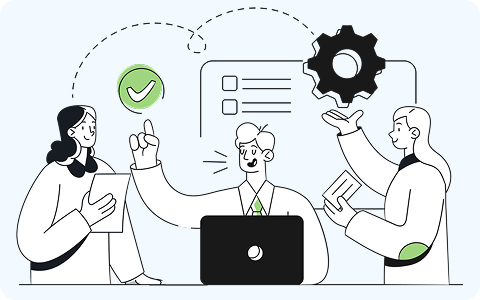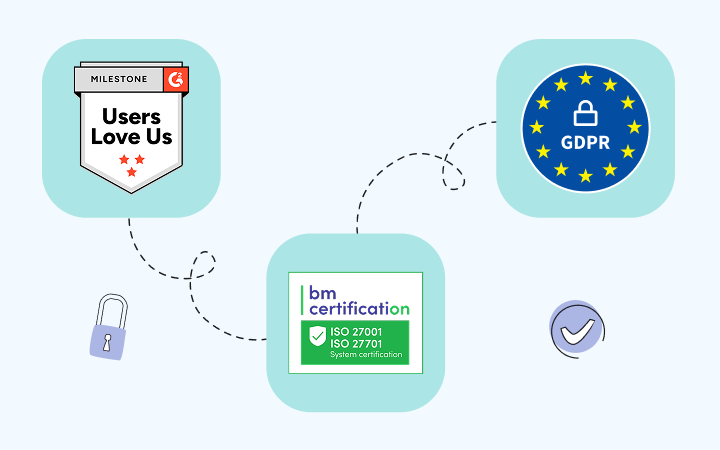


🍪 Allow functional cookies?
We use Zendesk messaging software for easy communication with our clients. Zendesk uses cookies to interact with website visitors and provide chat history.
See our Privacy Policy for more info. You can change your cookie preferences at any time in our Cookie Settings.





“It is not the time you spend at the office that makes you the most productive employee. It’s what you manage to do in that time,” says Zelma Diana Vidina, Managing Director of AD VERBUM Ltd.
AD VERBUM is a leading Northern European translation and localization company working for hundreds of customers around the globe in more than 70 target languages. AD VERBUM employs 25 in-house staff in Latvia and Bulgaria and close to 1,300 professional linguists globally.
Productivity tracking is a challenge for such an international team spread across many countries. To monitor the progress of its worldwide employees, AD VERBUM uses a variety of project management tools and applications. Zelma Diana Vidina points out that the company’s staff have to be highly skilled and agile to use and apply all these different tools. She explains:
“Currently at AD VERBUM we use 36 different translation and localization software tools in addition to the basic software like MS Windows, etc. This means that we really need to keep track of all our activities to see where our working hours are being spent.”
DeskTime is used for AD VERBUM’s in-house staff in its two offices in Latvia and Bulgaria. Meanwhile, freelance linguists use a different TMS (Translation Management System) and work according to deadlines set by the Project Management Department.
“Several years ago, it became clear that we needed to find some sort of automated solution to monitor how we do things in the company - most importantly, what works well and what can be improved,” Zelma Diana Vidina explains. “We tested several solutions, but in the end we decided to go with DeskTime because we found it more user-friendly than other similar apps.
At AD VERBUM we are big fans of Lean Six Sigma, and DeskTime is part of this continuous process. We work in a fast-changing and very competitive global industry, so we need to keep track of all our resources – human and others – to keep up with the best.
DeskTime has been revealing the project and quality management steps where we lose time and suggesting repetitive activities we could eliminate. We have also found new ways to automate our workflows to free up time for important things like strengthening relationships with our customers.”
“DeskTime’s monthly reports showed us that it’s not the time you spend at the office that makes you the most productive employee - it’s what you manage to do in that time. The best employees can do more in a shorter amount of time.”
AD VERBUM’s management also noticed that performance and productivity data varies among employees of different cultures:
“Just like there are differences in cuisine, there are differences in how people work when they come from different educational and skill-set backgrounds.
We haven’t done a statistical comparison based on these factors. However, we do consider certain things when working, for example, with linguists who mainly translate software content or linguists who translate clinical trials.”
“By now, all our employees are used to DeskTime,” says the Managing Director of AD VERBUM. According to her, it works in two ways - by helping everyone to monitor their own work and by helping HR see where changes are needed when some employees are working more on average than others.
“Time management is crucial in a modern, global company. It definitely helps us to work more efficiently and to see if there is any work-time imbalance between departments or employees within the same department.
Time is a rather elusive creature, so it’s nice to have monthly DeskTime data that helps us use this time more efficiently next month.”
Forget manual entries and distractions. With DeskTime, time tracking runs on autopilot—zero effort needed.